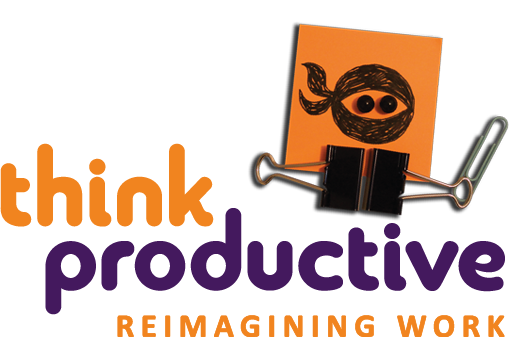Digital technologies can educate, energize, elevate, and inspire us—and they can distract, exhaust, and according to the BBC, addict us.
The digital age is a double-edged sword. While these tools can be wonderful servants, they can be terrible masters. An avalanche of emails, texts, and social media alerts are constant distractions, which we need to fend off in order to increase our productivity.
The first part of any journey planning is knowing where you are: “If you don’t know where you are, you won’t know what you have to do to get to where you want to go”. Take a look at the list below and see if any of the statements apply to you:
Signs of Digital Overload
- Finding it hard to complete a task such as writing a report without frequently breaking away to check email or unrelated websites
- Checking the same sites repeatedly within a short period of time
- Spending less and less time interacting face-to-face
- Slipping away to check email or social networking sites, while in the presence of others
- Going online or using your device when you feel stressed or want to avoid an unpleasant task
- Checking a digital device first thing in the morning, or getting up during the night to use digital devices
- Spending long stretches of time surfing for content
- Family members spending most of their time at home in separate rooms interacting with screens
- Frequently using digital devices to entertain a child instead of talking, playing, or reading with him or her
If you said yes to three or more of the statements, it might be time to change a few habits…
Ways to regain and stay in control
- Focus hours – Twice each workday, I will hold focus hours from 9 am – 11 am and from 2 pm – 4 pm. This means I am unavailable to anything that isn’t an emergency.
- Reset default screen from “inbox” to “calendar”. You should be in proactive mode, not reactive mode. If you are not sure how to do that click on this link.
- Turn it off – switch off the “notify you have new mail”and check it only twice a day (11:30 and 4:30 are times that work well for me).
- When you are in you are out use “Out of Office” when you’re in the office during “focused hours” and also when away on holiday. Go on, be brave!
- Treat e-mail more like real letters than a phone call. Email was not designed as an instant messaging system, and it should not be used as one. If you need an instant response, use the phone.
- Use “auto select” – junk mail or mail that is of no interest can go automatically into your “junk folder”. This frees up space in the inbox and saves time.
- Be nice – please don’t press “reply all”, just reply to those who have to know.
- Play the game – have a “digital free day”, setting aside one day each week to “unplug” and really really connect with people. Have you played the mobile phone ‘Game’ that improves your dining etiquette?
- Call instead – make a phone call rather than use email or texting. How many times have you played “email tennis”? Pick up the phone and it is sorted much quicker.
- Set limits – use social networking sites only at scheduled times and for a set time.
- Be brave – leave your mobile/smartphone/tablet in another room during time with family or friends. Remember there is an “off” button!
- Inspire yourself; – use technology to uplift and motivate yourself and people around you. One of my favourite sites is TED.
Make a Commitment
Management of your digital tools requires a lifestyle solution. You need to develop rules and habits that you can live by every day. Remember that staying organized is similar to maintaining a diet and exercise regime. Not doing so and treating organization like it’s a one-day spring-cleaning project is similar to going on a crash diet – any results you do see will be very short-lived.
Before you dive into your email reorganization project, take a moment to realize that you don’t have to be perfect. The goal is to come up with rules for living that you can reasonably stick to and that make your work or personal life easier, more productive, and more satisfying.
As you make these commitments and develop new habits, be sure to let people know so they understand you’ll be responding to them, just at a different interval than you did before. Let them know that if they need you urgently, they should call you or visit you. If they don’t like that idea, remind them that you love them (only slight kidding here) and they’re important to you but you are trying to make good things happen and that requires hard work and focus. Maybe they’ll be inspired and join you in your “brave new world” and we’ll all win.


Guilty!